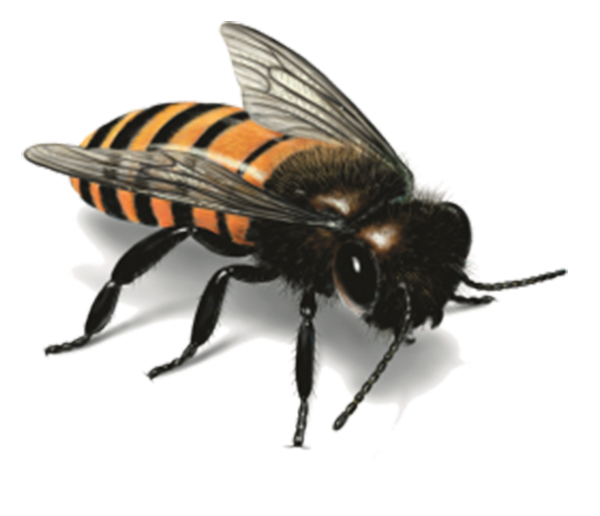Western Honey Bee (Apis mellifera) - also known as European Honey Bees -
are the most common species of honey bee worldwide.
They were one of the first domesticated insects, and they are the primary
species maintained by beekeepers to this day for both its honey production and
pollination activities. With human assistance, the western honey bee now
occupies every continent except Antarctica. Because of its wide cultivation,
this species is the single most important pollinator for agriculture globally.
Honey bees are threatened by pests and diseases, especially the Varroa mite and
colony collapse disorder.
Western honey bees are an important model organism in scientific studies,
particularly in the fields of social evolution, learning, and memory; they are
also used in studies of pesticide toxicity, to assess non-target impacts of
commercial pesticides.
